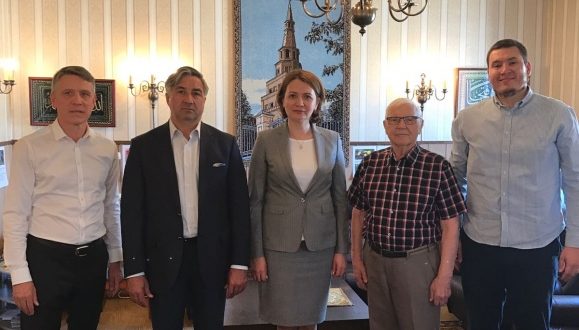13.05. 2018
Deputy Prime Minister of Tatarstan, Chairman of the National Council of the World Tatar Congress Vasil Shaikhraziev met with representatives of the Tatar community of Tampere during his working visit to Finland.
We remind today he first held several meetings in Helsinki, talked with head of the Islamic Society of Finland Golten Bedretdinom and board member Atik Ali. Vasil Shaikhraziev also met with a man who for many years had headed the community of Islamia, professor of the University of Helsinki Okan Dacher.
As part of the meeting with the Tatar community, it was once again about preserving the language, culture and traditions of the Tatars living far from the Motherland and about supporting the Finnish Tatars’ initiatives.
Tatars on the territory of Finland appeared about 200 years ago. In 1809, as a result of the Russo-Swedish War (1808-1809), Finland was annexed to the Russian Empire. In the military garrisons of the Russian army, Tatars were sent to build military fortresses on the Åland Islands and the islands near Helsinki.
The resettlement of Tatars to Finland went exclusively from the villages of the Volga region in the period from the 1870s to the mid-1920s, due to the arrival of the relatives of those who settled here earlier. That’s why even now the Tatars of Finland live in close connection with each other. In 1870, there were 46 Tatars in Helsinki.
Currently, about 950 Tatars live in Finland. Most live in Helsinki (about 500), the rest in Tampere, Turku, Kotka, Rauma and Vassa, Järvinpaa. Until recently, the Tatars were united in several Tatar societies.
Finnish Tatars are characterized by careful preservation of everything that is associated with national history, culture, language and customs. Thanks to the efforts of the Tatars of Finland, the Tatar language was included in the official list of minority languages of Europe.

